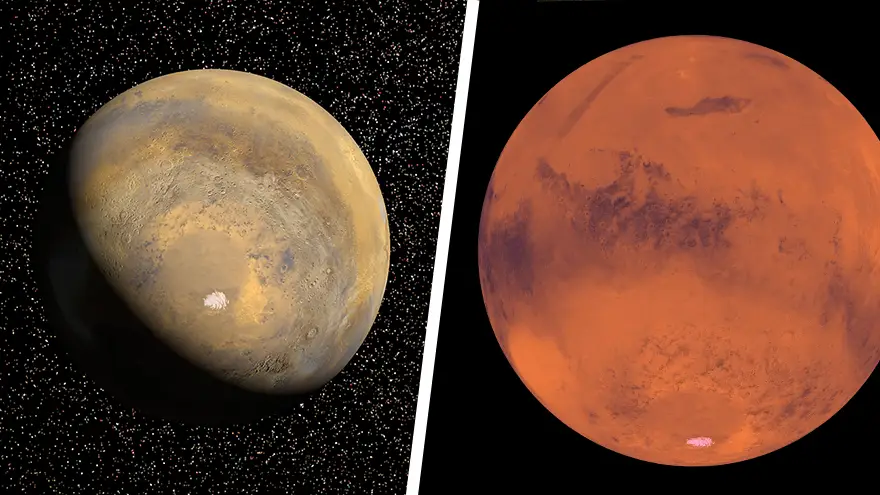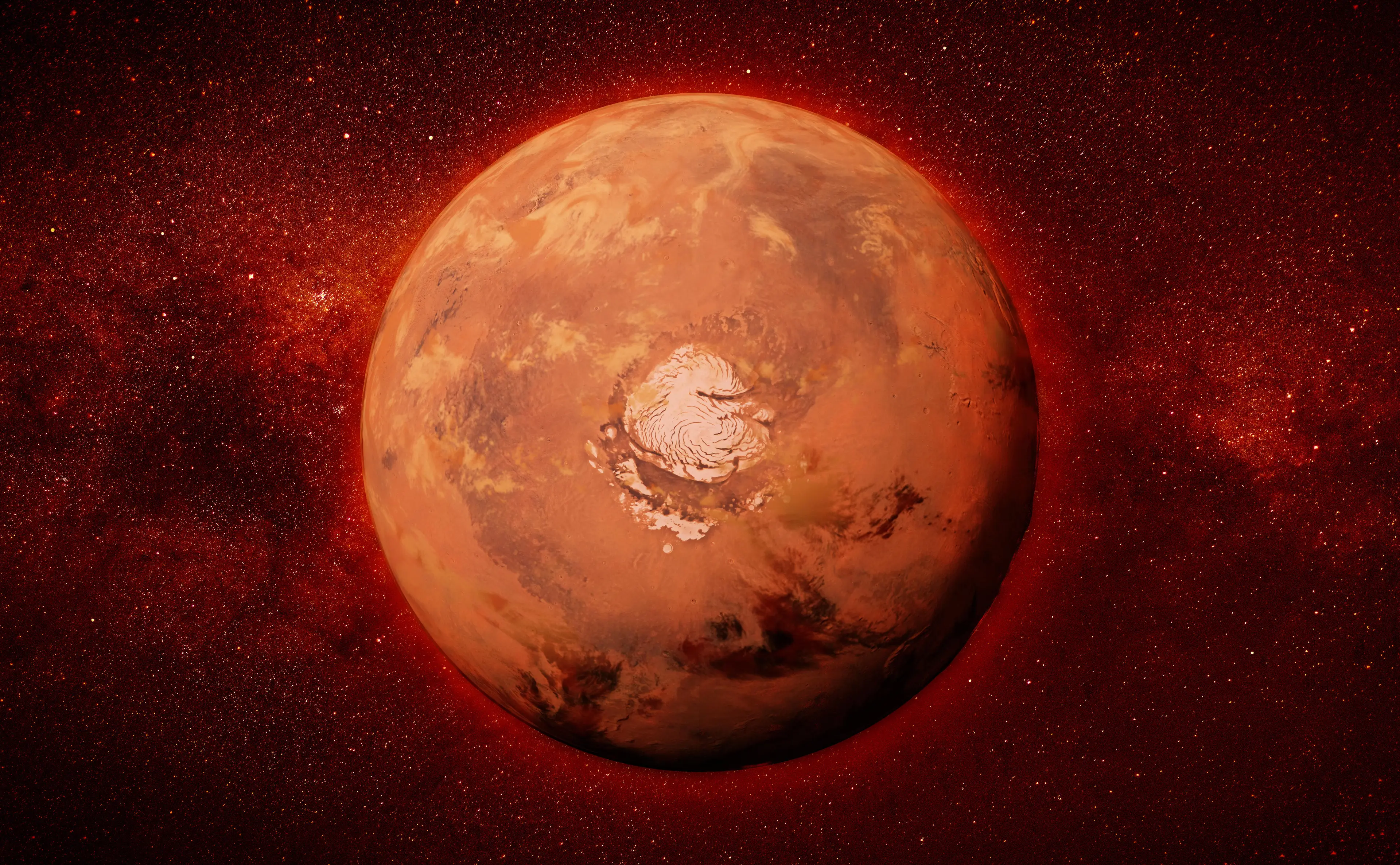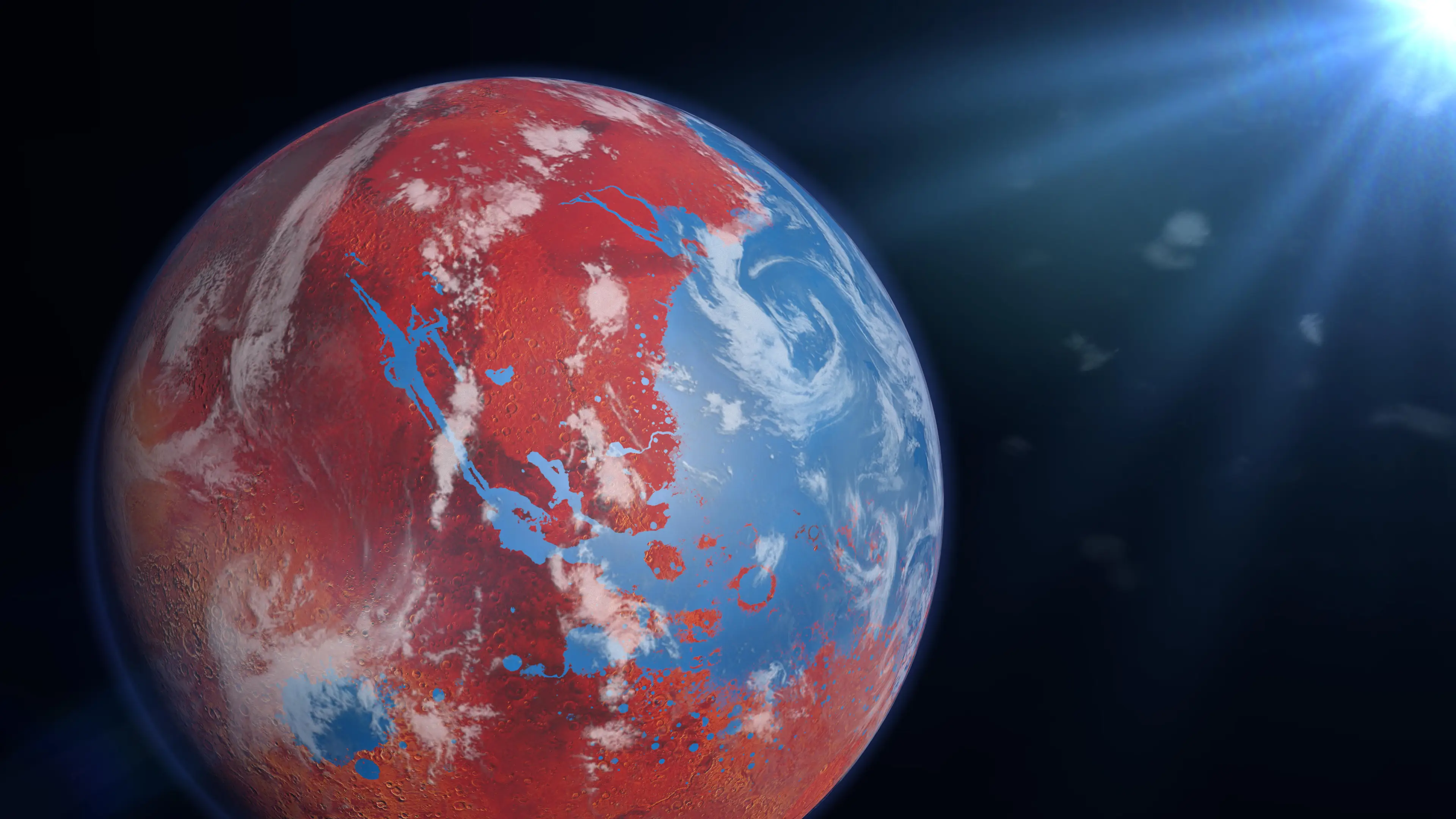
An international team of researchers has made one of the biggest space discoveries in aeons.
The University of Cambridge-led study provides the first independent evidence that there is liquid water beneath the Mars' south polar ice cap by using a method other than radar.
Instead, the team of space researchers used spacecraft laser-altimeter measurements on the shape of the upper surface of the southern ice cap to identify the subtle patterns in its height.
Using a computer modelling program, the measurements matched how the surface of the ice cap might differ if there was a body of water underneath.
Advert

Professor Neil Arnold from Cambridge’s Scott Polar Research Institute, who led the research, said the finding is a massive step forward in understanding Mars.
“The combination of the new topographic evidence, our computer model results, and the radar data make it much more likely that at least one area of subglacial liquid water exists on Mars today, and that Mars must still be geothermally active in order to keep the water beneath the ice cap liquid," he said, as per a press release.
Co-author of the study Dr Frances Butcher also shared a statement after the findings were published in the journal Nature Astronomy.
"This study gives the best indication yet that there is liquid water on Mars today because it means that two of the key pieces of evidence we would look for when searching for subglacial lakes on Earth have now been found on Mars," she said.

But, even though water is a crucial building block for a planet to support life as we know it, this doesn't mean we have aliens inhabiting our closest celestial neighbour.
"Liquid water is an essential ingredient for life, although it does not necessarily mean that life exists on Mars,"' Dr Butcher added.
Similar to Earth, the Red Planet has thick ice caps on both polar ends to the planet.
While they are roughly the same volume as Greenland Ice Sheet, which are underlain by water-filled channels and even large subglacial lakes, the polar ice caps on Mars were thought to be frozen solid all the way to their beds due to the cold Martian climate.
That is, until now.
This new study, paired with evidence from the European Space Agency’s Mars Express satellite back in 2018, challenges that assumption.
What it means for sure is we still have much to learn about our universal neighbour.
Topics: News, Space, NASA, Technology
